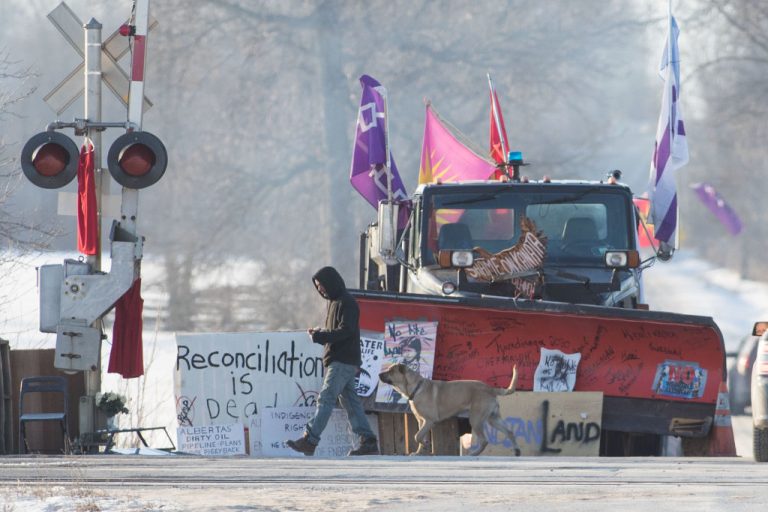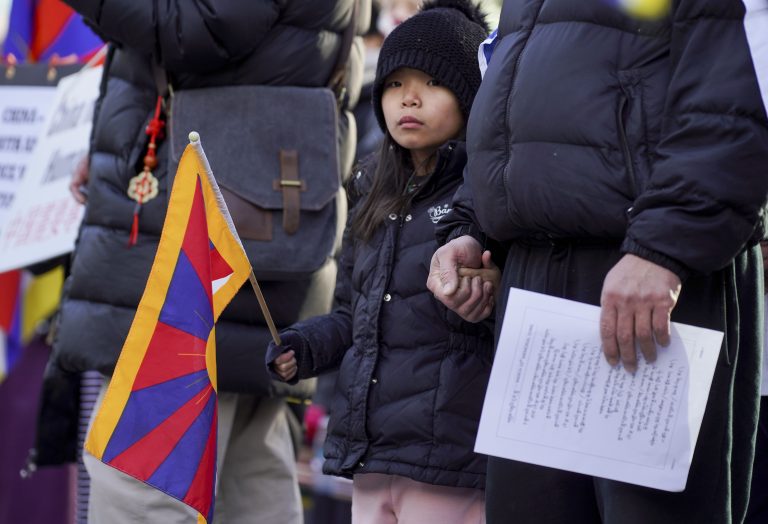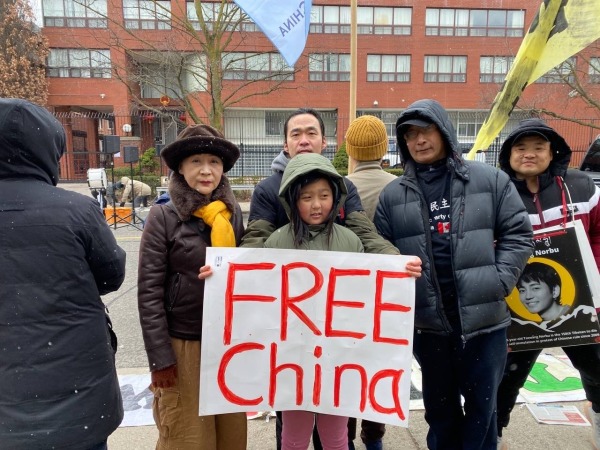A letter penned by a group of hereditary leaders of an indigenous tribe in Canada’s British Columbia region at the center of a series of domestic terrorism attacks on a natural gas production site has said that the violence is likely being stoked by outside radicals sustaining themselves via “donation campaigns.”
The most notable and recent event in the chain was the Feb. 17 assault on the Coastal GasLink (CGL) natural gas production site in British Columbia by approximately 20 people, many wielding axes.
The attack was so serious that an official RCMP press release stated that when the federal law enforcement agency attended, they were encumbered by “downed trees, tar covered stumps, wire, boards with spikes in them, and fires…lit throughout the debris.”
“As police worked their way through the debris and traps, several people threw smoke bombs and fire lit sticks at the police, injuring one officer,” it added.
One assailant even attempted to burn a vehicle while a TC Energy employee was trapped inside.
Success
You are now signed up for our newsletter
Success
Check your email to complete sign up
FURTHER READING:
- Ottawa Imitates Authoritarian Regimes With Violent Crackdown on Canada’s Freedom Convoy Protests
- RCMP Officers Clearing Freedom Convoy Display Unprofessional Attitude in Leaked WhatsApp Screenshots
- Behind Aubrey Cottle, the Man Claiming Credit for the GiveSendGo Hack
The attack was notably bad optics as it came shortly after minority government Liberal Party leader Prime Minister Justin Trudeau invoked the Emergencies Act to clear the Ottawa Freedom Convoy trucker occupation protest, which had remained entirely peaceful throughout its several week course.
The version of the Emergencies Measures Regulations deployed via the Act also specifically exempted any person “registered as an Indian under the Indian Act” from edicts outlawing participation in blockade-style protests against Canada’s infrastructure and borders.
In a Feb. 23 article published by Canada’s establishment-left Globe and Mail commenting on a letter penned by 120 members of the Wet’suwet’en Nation calling for an emergency meeting revealed that, similarly to Freedom Convoy, the violence in the area was being crowdfunded.
“It remains very evident that the Nation is extremely divided and that militant outside influences have created a violent and confrontational dynamic onto our territories,” stated the letter.
It added, “A portion of Wet’suwet’en territory has been occupied by those from outside the Gidimt’en/Wet’suwet’en and are funded via donation campaigns … however those who are primarily accessing those funds are not from the clan or our Nation but from those outside our Nation.”
Although the domestic terrorism and extremist groups in the Feb. 17 attack remain unidentified, the attack was the latest in a string of many dating back to 2020 protests by certain actors associated with the Wet’suwet’en tribe after a court injunction gave law enforcement the handle to clear protests and blockades from the CGL site.
Some protests associated with the tribe blockaded rail lines during 2020.
No word on invoking the Emergencies Act and its related financial measures, such as bank account seizure and civil asset forfeiture, against the perpetrators of the attack have been mentioned by various levels of the Canadian government.
In a Feb. 22 press release by the RCMP, footage of the CGL attack was released to the public showing intruders dressed in full body suits and wielding axes striking vehicles with employees inside.
A rudimentary search on Twitter revealed a Seattle-based “art and community space” running an event “to get updated on the struggle at Gidimt’en to stop Coastal GasLink from drilling under the sacred waters of the Wedzin Kwa.”
“We will show one documentary short, provide historical background, and collect donations for legal support,” said the post, dated November of 2021.
Another from October of 2020 associating itself with the Unist’ot’en House Group posted a “supporters toolkit” that also called for donations. The website linked to included solicitations for a “Legal Fund” and a “Monthly Donation Program.”
Another from December of 2021 showed a Twitter ad campaign being run by an organization associating itself with Marxist revolutionary group Black Lives Matter attempting to solicit donations in the name of the Wet’suwet’en conflict.













